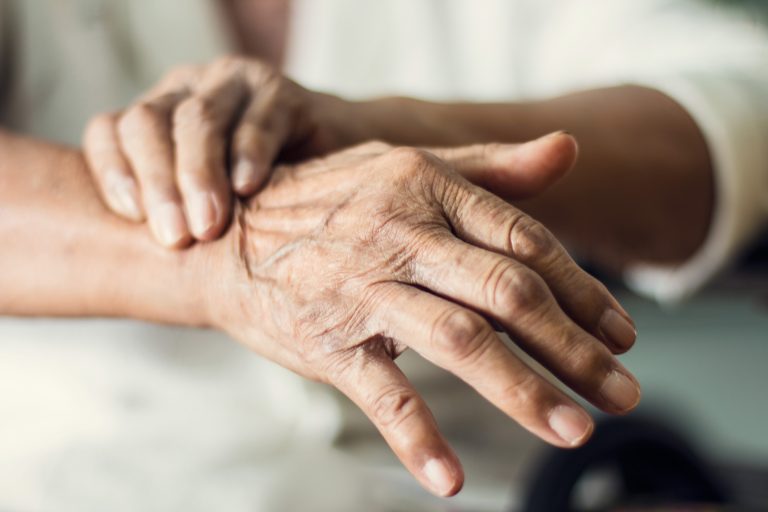Understanding Complex Regional Pain Syndrome
Complex regional pain syndrome (CRPS) is a multifaceted and debilitating neurological condition characterized by chronic pain, usually affecting a limb. This condition typically develops after an injury, surgery, or serious medical scare, such as a stroke. Patients with CRPS typically experience an array of symptoms, including intense pain and sensitivity in the hands or feet, swelling, changes in the appearance of the skin, and limited function. The pain that comes with this condition can become severely debilitating, ultimately hindering patients’ abilities to sleep well, participate in physical activity, and maintain good mental health.
Although there are some questions about the exact nature of CRPS, there is a general understanding that allows doctors to help patients suffering as a result of it. All cases of CRPS stem from an abnormal response within the central nervous system. This theory suggests that tissue damage triggers an exaggerated inflammatory response in the affected area, leading to dysfunction in the peripheral and central nerve pathways.
Unfortunately, complex regional pain syndrome is quite uncommon, and therefore many doctors are not familiar enough to properly diagnose or treat the condition. Patients who are seeking medical attention must find a doctor experienced in the treatment of CRPS to ensure they are in good and capable hands.
Types of Complex Regional Pain Syndrome
There are two types of complex regional pain syndrome, each of which comes with different symptoms. The development of CRPS occurs spontaneously, and getting an accurate diagnosis is imperative to getting proper treatment.
Type 1 CRPS, reflex sympathetic dystrophy (RSD), occurs without any known nerve damage. Patients with RSD often experience symptoms including constant burning in the extremities, changes in the texture and color of skin, and limited mobility. Oftentimes, RSD will go away with time, and only in severe cases will it remain and continue to worsen. Type 2 CRPS, causalgia, occurs as a result of a known, specific nerve injury. Although both of these conditions share many of the same symptoms, it is important to get a specific diagnosis, as treatment can vary widely depending on which type the patient has.
Impact of This Condition on Patients’ Lives
Complex regional pain syndrome is a debilitating condition that can have a profound impact on individuals’ lives, both physically and psychologically. Apart from the excruciating discomfort, CRPS can lead to significant functional impairment, affecting an individual’s ability to carry out everyday activities and work-related tasks effectively. Furthermore, this collection of serious symptoms often takes a significant toll on a patient’s mental health. Unfortunately, the mental effect of CRPS is often overlooked. Many patients deal with mental conditions, but are unsure whether to bring it up with their doctor. Patients with CRPS commonly struggle to get a good night’s sleep and experience anxiety and/or depression.
Physical Therapy and Rehabilitation
Physical therapy and rehabilitation play a crucial role in the management and treatment of complex regional pain syndrome. Due to the multifaceted nature of this condition, a comprehensive approach is required. Physical therapists with expertise in CRPS employ various techniques to improve mobility, decrease pain, and enhance functionality. This often includes gentle exercises to improve range of motion, build strength, and increase flexibility. Oftentimes, manual therapies are utilized as well, including joint manipulation and soft tissue mobilization.
Spinal Cord Stimulators as a Pain Management Tool
Spinal cord stimulators (SCS) are common pain management tools that doctors recommend to patients suffering from complex regional pain syndrome. As mentioned earlier, CRPS pain is a result of nerve damage. Spinal cord stimulators treat nerve pain by masking the pain signals from reaching the brain. A spinal cord stimulator is a small device implanted near the spinal cord delivering mild electrical impulses to nerve fibers. These devices provide significant pain relief to patients suffering from severe nerve pain.
Treatment with BEST Health System
BEST Health System is offering spinal cord stimulator trials to patients with complex regional pain syndrome. We understand that CRPS pain can make living your life very difficult, and we are proud to offer a solution. Dr. Shall and Dr. Staggs are two of our outstanding pain management specialists who offer spinal cord stimulator treatment. Contact BEST today if you are suffering from severe nerve pain as a result of complex regional pain syndrome.
